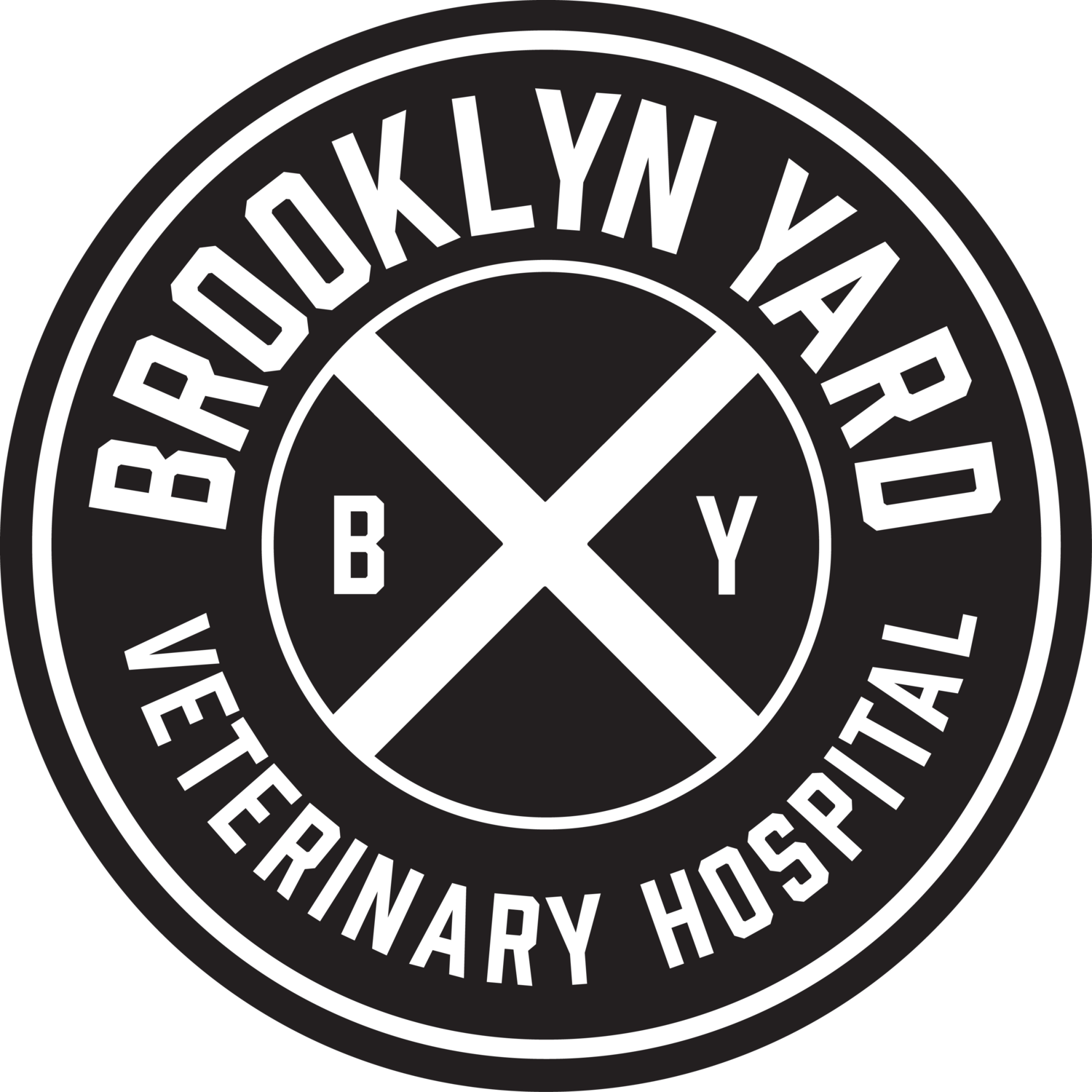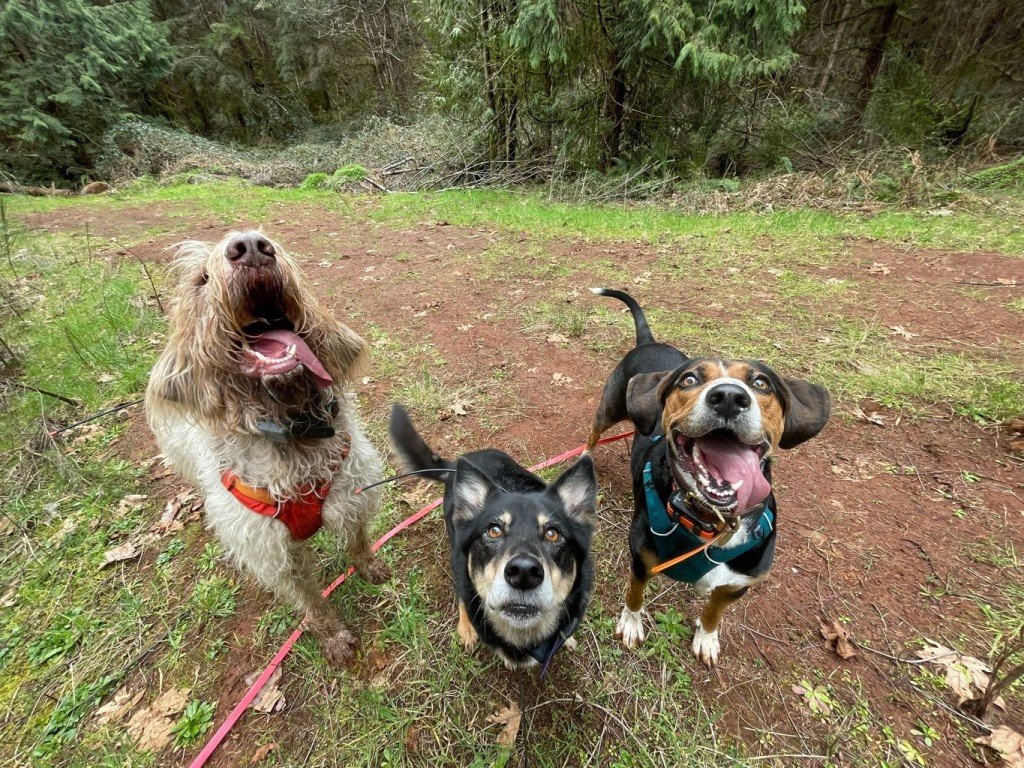Important Notice!
As of 5/20/2024, if you wish to establish with our clinic to discuss behavior support for your pet, we will only be accepting clients who are actively working with a trainer or who have been referred by a trainer as part of a comprehensive behavior modification plan. This is due to limited appointment availability and increased demand for behavior consultation appointments.
We will continue to support new clients who wish to establish due to veterinary phobia concerns only. This entails planning and support for veterinary visits only.
Please see our training resource list for recommended +R trainers if your pet needs behavior support and you need a place to start.
As a reminder, both Animal Behavior Clinic and Synergy Veterinary Behavior offer comprehensive behavior consultations from Board Certified Veterinary Behaviorists (DACVB) and should always be considered first for any behavior challenge.
If you are interested in establishing with our clinic for a behavior focused exam, please click here for FAQs and to submit a request for consultation.
Behavior Support
What We Offer.
Our veterinarians are comfortable helping clients navigate challenging behaviors from their dog and cat both inside and outside of the veterinary setting with compassion and thoughtfulness. We provide support in the form of behavioral-focused consultations, pharmacologic intervention, and tailored planning for a thorough physical examination for patients with more extreme veterinary phobias.
How We Do It.
We connect our clients & patients with appropriate resources to set them up for success. Whether it is referring to a Board Certified Veterinary Behaviorist (DACVB) in certain cases, connecting with a positive reinforcement trainer in our community, or pharmacologic trials, we work to help those clients whose pets need behavioral support.
FAQs
-
If your dog (or cat) struggles ONLY in a veterinary setting, has had stressful or difficult veterinary visits in the past for routine care, or reactions seem to be escalating in a clinical setting, these appointments are scheduled as a normal new patient/establishing care exam. *A behavior-focused consultation is NOT necessary to address struggles in a veterinary setting and plan for ongoing care.
During this initial visit, we may not even examine your pet, but get a weight, review previous medical history and come up with a plan for how to proceed with obtaining a thorough physical examination, plan for wellness care and/or diagnostics (if needed) and schedule the time to accomplish care at a later date.
You can read more about what this visit may entail here.
*Please note that guardians who feel that their pet needs behavioral support outside of veterinary visits will need to schedule a behavior-focused consultation as outlined below.
-
The truth is that there are several different titles used for those who work with dog training and behavior. Many of them deal with both dog training and behavior because the two go hand-in-hand. However, not all are equipped to handle major behavior issues.
It's important to understand that anyone can call themselves a dog trainer or even a behaviorist. Unfortunately, there are no laws dictating what defines a dog trainer or a behaviorist.
Veterinary Behaviorist. A veterinary behaviorist is an actual veterinarian who has gone on to specialize in behavior. This generally means earning a bachelor's degree, then attending four years of vet school. After becoming a DVM, the candidate must complete an internship, a residency in behavior, author a scientific paper, write peer-reviewed case studies, and pass a rigorous examination. Upon completion, the vet can become a Diplomat of the American College of Veterinary Behaviorists. Only an individual with a Doctorate of Veterinary Medicine (DVM) or other equivalent degrees (VMD, BVSc, BVetMed, BVMS) can prescribe or make specific drug recommendations.
Animal Behaviorist. Again, anyone can claim to be a behaviorist. However, technically speaking, professional behaviorists are called Applied Animal Behaviorists. They earn this title through formal education and earning an MS, MA, or Ph.D. in animal behavior. Some go on to earn additional certifications such as CAAB (Certified Applied Animal Behaviorist) or ACAAB (Associate Certified Applied Animal Behaviorist). Behaviorists are experts in behavior modification and also deeply understand the normal behavior of the particular species being treated.
-
The short answer is no. Our veterinarians have strong interests in behavior, additional behavior-focused training and experience in counseling and helping pets that need behavioral support both inside and outside of the veterinary facility. They can prescribe medications to support a behavior modification plan. We frequently refer to and work with patients from Animal Behavior Clinic and Synergy Veterinary Behavior to provide general veterinary care and diagnostics.
-
If you have pet insurance, you may have coverage for behavior support. Check with your policy.
For clients who have Trupanion™️ and have behavior coverage, training through Instinct (Animal Behavior Clinic) or Synergy can be covered because of trainer association with a board certified veterinary behaviorist.
-
We do not provide behavior support for those animals that utilize another veterinary facility for general medical and wellness care. In order to utilize our behavior support services, you must be an established client or transfer to Brooklyn Yard for all veterinary care.
We do not have the capacity to support clients who use us only for behavior support, nor is this in the scope of our practice. We have our own patients whom we serve as primary care providers for. We are not a specialty referral practice for behavior. We are a general veterinary practice and we do not communicate plans for behavior support to other veterinarians. Utilizing a behavior speciality practice like Animal Behavior Clinic or Synergy Veterinary Behavior would allow you to continue all other care with your current veterinarian. -
Our list of positive reinforcement training professionals is HERE
-
This is a 60 minute examination with a veterinarian that consists of discussing a behavior-focused questionnaire and then determining a plan for that individual animal. We assume that the patient is already receiving support from a qualified trainer for behavior modification. This consult may include, scheduling a follow-up diagnostic examination with a specific medication plan and/or prescribing medications.
Please be aware that if you want to discuss behavior concerns during a wellness/physical examination, you will be asked to schedule a behavior-focused exam or follow-up virtual consultation. These are often involved discussions with follow-up that often cannot be adequately covered without a specific behavior history questionnaire and more time than a regular exam allows. There is a lot more involved than just prescribing medications to set you and your pet up for the best chance of success.
-
We reserve specific time slots for these consultations and have limited availability per month. At this time these appointments are reserved for established clients or new clients that are actively working with a trainer (+R) *. Please fill out the request below as this is the most time efficient way to expedite the process of scheduling the appointment. One of our client service representatives will reach out to you when we receive all the necessary pieces of information, including previous medical records and a referral from a trainer. Please understand that we book out in most cases 6-8 weeks for these appointments and have a limited capacity for accepting new clients for behavior support yearly so we can continue to support our current clients.
Once your appointment is scheduled, you will be asked to fill out a questionnaire as a very important part of this examination. We must receive this information at least 48 hours before your appointment time.
Please note that we reserve the right to decline to proceed with a behavior-focused consultation after review of previous medical records or review of behavior history.
*For cats seeking behavioral support, actively working with a trainer does not apply.
-
The cost of this initial consultation is $350 and includes email communication with the veterinarian within the initial medication adjustment period. During this initial consultation, a physical examination may or may not occur depending on the patient’s comfort level, but we would ask that your pet accompanies to you to this examination as behavioral observations are an important part of formulating a medication plan.
The initial investment includes follow-up communication about patient progress via email and adjustment of medications (if necessary) over the next 2-3 months.
Ongoing adjustments of medication beyond the initial consultation and immediate period thereafter (>3 months after the consultation) or more involved discussions regarding a patient’s treatment plan and observed behavior will require a scheduled, follow-up fee-based phone consultation. In most cases, this is a 30-minute, dedicated virtual (phone) discussion that entails planning for a patient’s ongoing care and medication adjustment(s) ($85).
For clients already established with us for preventative care, the cost of a 1-hour in-clinic consultation is $225.
In certain cases, if you are actively working with a veterinarian in our clinic and a recent physical exam has been performed, a 30-minute phone (virtual) consult may be deemed appropriate for medication counseling purposes ($150). This option is determined by the veterinarian.
Follow-up phone consultation, if needed, > 3 months after the initial behavior-focused consultation ($85)
Please read all FAQs above before submitting your request for a behavior-focused consultation.
Please fill out this form ONLY if you have a confirmed and scheduled appointment time slot for a behavior support consultation with a veterinarian.
This is a detailed form regarding your pet’s behavior history. We must receive this form 48 hours prior to your appointment or you may risk forfeiting your appointment slot. Please be as detailed as possible in your responses. This information is important in formulating a behavior support plan.



